Columns
In Theory, New in Ceasefire - Monday, March 9, 2015 17:45 - 0 Comments
An A to Z of Theory">Alain Badiou: After the Event An A to Z of Theory
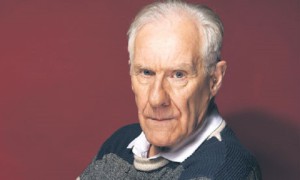
In this seventh of his ten-part series on Alain Badiou, Andrew Robinson explores what happens after the Event and its unfolding, and examines a number of possible pitfalls with Badiou's theory. Do actual revolutions unfold in the way which Badiou models? And can Badiou deal with Event-like processes with reactionary consequences?
New in Ceasefire, Reflections - Friday, January 30, 2015 11:01 - 0 Comments
Reflections">Displacement and Belonging: ‘Like Travelling the World by Being in One Place’ Reflections
 'The Commonality of Strangers', a new exhibition launching today at the New Art Exchange, is a reminder that belonging is a set of alliances and allegiances and not something that can be defined in terms of ancestral claims, skin colour, and packaged territorial boundaries, argues Roger Bromley.
'The Commonality of Strangers', a new exhibition launching today at the New Art Exchange, is a reminder that belonging is a set of alliances and allegiances and not something that can be defined in terms of ancestral claims, skin colour, and packaged territorial boundaries, argues Roger Bromley.
In Theory, New in Ceasefire - Tuesday, January 20, 2015 10:54 - 1 Comment
An A to Z of Theory">Alain Badiou: Truth, Subjectivity, and Fidelity An A to Z of Theory
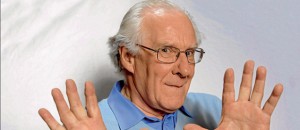 In his latest column on Alain Badiou, Andrew Robinson explores how the French theorist believes an Event should be unfolded or followed in revolutionary politics. Robinson covers three key Badiousian concepts: the Truth, the revolutionary subject, and the ethical principle of fidelity to an Event.
In his latest column on Alain Badiou, Andrew Robinson explores how the French theorist believes an Event should be unfolded or followed in revolutionary politics. Robinson covers three key Badiousian concepts: the Truth, the revolutionary subject, and the ethical principle of fidelity to an Event.
Diary of a Domestic Extremist, New in Ceasefire - Thursday, January 8, 2015 20:05 - 1 Comment
Diary of a Domestic Extremist">Obstacles to Solidarity: The Age of Anxiety Diary of a Domestic Extremist
 Continuing his examination of the decline of radical activism, Mikhail Goldman explores the theory that we are all very anxious. Precarious employment, continuous surveillance and the threat of sanctions under modern capitalism paralyse us and make us more alone than ever. We need to recognise and fight these obstacles to solidarity.
Continuing his examination of the decline of radical activism, Mikhail Goldman explores the theory that we are all very anxious. Precarious employment, continuous surveillance and the threat of sanctions under modern capitalism paralyse us and make us more alone than ever. We need to recognise and fight these obstacles to solidarity.
In Theory, New in Ceasefire - Monday, December 15, 2014 11:13 - 11 Comments
An A to Z of Theory">Alain Badiou: The Event An A to Z of Theory
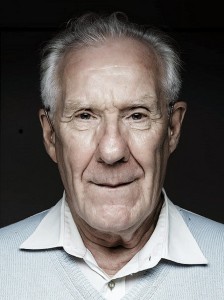 Badiou's theory of the Event is the lynchpin of his influential, but controversial, theory of revolutionary politics. In the fifth instalment of his series, Andrew Robinson traces the contours of the Event, and its fundamental attributes, such as undecidability, ontological disruption, and unfoundedness. He also examines which historical revolts are viewed by Badiou as authentic Events – and why some historical revolts fall short.
Badiou's theory of the Event is the lynchpin of his influential, but controversial, theory of revolutionary politics. In the fifth instalment of his series, Andrew Robinson traces the contours of the Event, and its fundamental attributes, such as undecidability, ontological disruption, and unfoundedness. He also examines which historical revolts are viewed by Badiou as authentic Events – and why some historical revolts fall short.
Diary of a Domestic Extremist, New in Ceasefire - Wednesday, December 3, 2014 21:16 - 10 Comments
Diary of a Domestic Extremist">Obstacles to Solidarity: On the Decline of Radical Activism in the UK Diary of a Domestic Extremist
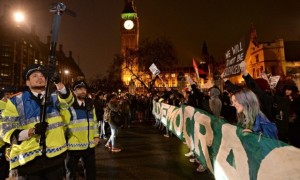 Five years ago, radical activism in the UK appeared to be entering a golden age. Today, it seems to have run out of momentum and ideas. In his latest column, Mikhail Goldman examines the sources of the malaise, and potential ways out of it.
Five years ago, radical activism in the UK appeared to be entering a golden age. Today, it seems to have run out of momentum and ideas. In his latest column, Mikhail Goldman examines the sources of the malaise, and potential ways out of it.
Ghosts of History, New in Ceasefire - Monday, October 13, 2014 18:08 - 6 Comments
Ghosts of History">The Natives of Canada Ghosts of History
 In the latest installment of his series on the forgotten victims of European colonialism, Ceasefire's Xain Storey examines the genocide of Canada's Aboriginals.
In the latest installment of his series on the forgotten victims of European colonialism, Ceasefire's Xain Storey examines the genocide of Canada's Aboriginals.
New in Ceasefire, Radar Reports - Tuesday, October 7, 2014 18:28 - 0 Comments
Radar Reports">Teenage Pregnancies in Kenya: “I knew nothing about contraception and I was very much in love” Radar Reports
 In recent years, Kenya has seen an alarming rise in teenage pregnancies, forcing thousands of girls to abandon their education early and spurring a national debate over the causes and repercussions of the issue. Susan Yara reports from Mombasa.
In recent years, Kenya has seen an alarming rise in teenage pregnancies, forcing thousands of girls to abandon their education early and spurring a national debate over the causes and repercussions of the issue. Susan Yara reports from Mombasa.
In Theory, New in Ceasefire - Wednesday, September 24, 2014 12:38 - 2 Comments
An A to Z of Theory">Alain Badiou: The Excluded Part and the Evental Site An A to Z of Theory
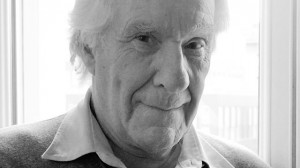 Andrew Robinson examines the conditions for the emergence of an Event through the lens of Badiou's theory of social exclusion, and explains why, for Badiou, a truly revolutionary process must begin from the standpoint of the worst-off.
Andrew Robinson examines the conditions for the emergence of an Event through the lens of Badiou's theory of social exclusion, and explains why, for Badiou, a truly revolutionary process must begin from the standpoint of the worst-off.
Columns, Ghosts of History, New in Ceasefire - Wednesday, September 3, 2014 0:00 - 2 Comments
Ghosts of History">The Tasmanian Aborigines Ghosts of History
 In the first installment of a new series, 'Ghosts of History', on the forgotten victims of European colonialism, Ceasefire's Xain Storey examines the genocide of the Tasmanian Aborigines.
In the first installment of a new series, 'Ghosts of History', on the forgotten victims of European colonialism, Ceasefire's Xain Storey examines the genocide of the Tasmanian Aborigines.

